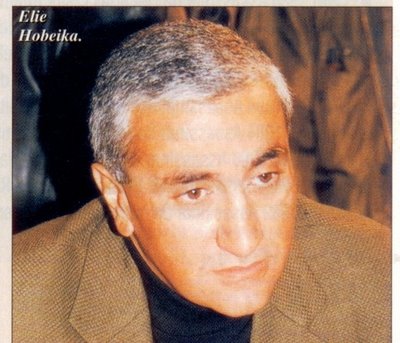
March14th have utterly failed the test of Leadership in Lebanon and abroad….Wikileaks are but a Teaser….what is known is much worse….
http://www.assafir.com/article.aspx?EditionId=1805&ChannelId=42439&ArticleId=25971. March 14 leaders all proved to be traitors to their nation, conspiring with foreign powers to encourage attacks on their own country….
2. Hezbollah’s Valiant Resistance and its arms are paramount for self-defense and have been entirely vindicated in every way, not only in 2000, in 2006 as well and still are today, till the dawn of an elusive comprehensive peace….
A potential leader must have something more than good personal qualities…. He must have an intellectual spark which does not necessarily come from his or her educational qualifications… None of the March14th figureheads…has given evidence of such an intellectual spark…
Till now, March14th have not demonstrated any leadership qualities by way of ideas and actions…
March14th ability to understand and logically analyze the complex internal and external problems facing the country is yet to be proved….
March14th views tend to be very simplistic and do not indicate wide reading and an ability to think deeply….
A good “leader of the future” must excite the younger generation. March14th doesn’t—not even in their own respective parties….all feudal and decrepit….March14th track record till now—whether in respect of contribution to new ideas or new policies—has been mediocre at best, destructive at least….. Apart from the fact that March14th have come from mostly privileged feudal political families, which have never made any tremendous contribution to the nation, March14th is yet to demonstrate any qualities which compel attention and could make us look upon them as “leaders of the future”….
It is important to have an objective and balanced debate on this subject devoid of rhetoric, abuses and ideological arguments so that we have a complete picture of March14th before our eyes on the basis of which we can decide whether March14th is fit to lead Lebanon in the difficult years to come…..potential leaders, should not be treated as a sacred cow which has to be accepted by the people without any scrutiny….
Kamal Salibi, a man of myriad personalities, a house of many mansions....
“The Modern History of Lebanon” had long been a valuable companion in my research, as had his “Crossroads to Civil War: Lebanon 1958-1976,” even though the work was soon overwhelmed by the monumental conflict whose origins it aspired to chronicle. However, it was “A House of Many Mansions: The History of Lebanon Reconsidered” that has proven to be Salibi’s most influential book, and rightly so.
The essence of the book is modesty, and I would add Protestant modesty. That’s because Salibi approaches his subject from the standpoint of an individual belonging to a minority maneuvering among more forceful, numerically larger minorities. A friend once noted, citing the sociologist Ahmad Beydoun, that the better historians of Lebanon were those from marginal religious sects, including Salibi, but also Edmond Rabbath and Zein Zein, who could take their distance from a narrative shaped principally by Maronites and Sunnis during the years when modern Lebanon was finding its feet.
“A House of Many Mansions” is a product of modesty because it is constructed around the most modest of urges: to doubt. Salibi’s mission is to examine critically the contending views of Lebanese history – essentially the historical myths that Lebanon’s communities have adopted to assert their own prevailing ideologies against the other Lebanese communities. It is a subtle, devastating book, fundamentally out of joint with what so many Lebanese take as truth.
The German political scientist Theodor Hanf astutely remarked near the end of Lebanon’s war that “A House of Many Mansions” could potentially serve as a core post-war reference for Lebanese students, a unifying text in a country deeply divided by historical interpretation. Yet that quality is why Salibi’s book was never made, and never will be made, to serve such a worthy objective. Lebanon is not a country where communities are partial to the truth when it clashes with their self-image, let alone with tradition perpetuating a stalemate in power.
That could be one explanation for Salibi’s intriguing love-hate relationship with the Maronites. In one sense, he was doubly predisposed and indisposed toward the Maronites. Predisposed as a historian, for he could not avoid being fascinated by a community whose rise in the 19th and 20th centuries was, in many respects, that of Lebanon itself – a community that became the life-force of the modern Lebanese state; and predisposed as a Protestant, and through his ancestors as a Greek Orthodox, for Salibi could not help but be enthralled by Maronite affirmation as a stand-in for wider Christian affirmation, therefore partly Protestant affirmation, which his own minority within a minority could never replicate.
And yet fascination can also carry with it revulsion. Salibi was conceivably doubly indisposed to the Maronites from his vantage point as a Protestant and a Greek Orthodox, for what is the story of the weaker Christian sects than a yearning to strike back against what they deem to be Maronite hegemony? So that even as Salibi wrote about the Maronites, and published a monograph on their historians, his most potent weapon against the weight of Maronite historiography (and not only Maronite historiography) was skepticism, expressed through a reconsideration of Lebanese history.
Toward the end Salibi seemed torn between despair with what he identified as a Christian, and specifically a Maronite, impulse for self-destruction, and anxiety with how such communal suicide might adversely affect the Christian presence in the Arab world. In an interview in 2007, he lamented that Christians “are so bent on destroying themselves … [I]t seems that they enjoy the lack of charity more than they enjoy life for some reason.”
Now here was a forgotten word: charity. Charity, modesty, temperance, diligence, all virtues that this unique professor had learned from those sturdy American Protestants of yesteryear, in whose educational institution he had thrived, now erected by Salibi as barriers against a Lebanon, in particular a Christian Lebanon, that seemed to be going in a different direction than what he would have preferred. But this Christian Lebanon, concurrently attractive and repulsive, vital and reckless, was a profound part of Kamal Salibi, a man of myriad personalities, a house of many mansions....
ما ابلغ واصرح الانسان عندما ينطق بالحق، الحقّ الذي يحرّر. وما أوقح الخبيث المهادن عندما يظن انه لم يعد يخشى احدا.
عندما تحدّث البطريرك الماروني، راعي ربيع الكنيسة المسيحية المشرقيّة، عن مخاوف الأقليات من أكثرية طاغية تحاول تكوين نفسها من جديد، قامت القيامة عليه من هنا وهناك. لكنه تكلّم كلام من سبرت عيناه أعماق التاريخ الذي لم تندمل جراحاته بعد. بينما هم كلّهم حنين الى جاه بائد تبخّر بفعل غياب سيّدهم بداعي الوان الواي تيكت.
أمّا اردوغان المتحدر من بني عثمان، اردوغان الذي يظنّ أنّه دحر العلمانيين في تركيا على أمل أن يغلبهم من جديد في سوريا، اردوغان الذي تربطه بالاخوان المسلمين روابط عقيدة، أردوغان الذي أعطى نفسه بتبريد علاقاته مع اسرائيل، صكّ براءة من جانب واحد للولوج من جديد في الشرق العربي، اردوغان المنتصر (برأيه) قال كلاما خطيرا في مصر.
وكلامه جاء اثباتا واضحا وصريحا أن بطريرك الموارنة كان على حق. وأنّ المخاوف التي أبداها كانت فعلا في محلّها.
ماذا قال اردوغان؟
قال إنه "كما كان في التاريخ التركي شاب قام بإنهاء حضارة سوداء ودشن حضارة جديدة عريقة عندما فتح اسطنبول وهو محمد الفاتح، فإن هناك شبابا في مصر أغلقوا صفحة وفتحوا صفحة حضارة جديدة".
ما يزال الوقت باكرا كي نشارك اردوغان فرحه بقلب النظام في مصر. وعلينا أن نحدّد بالأوّل نوعيّة الانتفاضة البرمجة التي طردت آل مبارك من الحكم. وهل هي حقا ربيع مصري، أو انقلاب للاخوان المسلمين، او مسرحية معقدة الاخراج لابقاء السلطة بأيدي العسكر. لكن عندما ينعت اردوغان المسيحية الارثوذكسية بالحضارة السوداء، فهو ينظر بازدراء عميق الى كل ما لا ينتمي الى عقيدته في الاسلام بصلة. وهذا ما يحسب له ألف حساب.
وهل لنا أن نذكّر فاقدي الذاكرة بالفوقيّة التركية في التعامل مع الشعوب المحيطة بها؟ وكيف غلّفت هذه الفوقيّة برداء الاسلام تجنيّا. وكيف أغرق المشرق،مسيحيا أو مسلما في الجهل على مدى 400 سنة. وكيف فتح باب الهجرة للصهيونية نحو فلسطين. وكيف تفنّن في سياسة ال " فرّق، تسد". وكيف أن اراضي المسيحيين في تركيا ما تزال حتى اليوم تئنّ حنينا الى اصحابها الذين طردهم العثمانيون منها منذ أقل من مئة عام. وكيف أنّ الطرقات المؤدية من هذا البلد الى شرقنا ماتزال مدموغة بدم الأرمن . وأنّ ثلث أهل الجبل اللبناني مات جوعا بعد حصار اسلاف اردوغان له في الحرب العالمية الاولى.
كلام البطريرك أكبر بكثير من طموحات وعمالات بعض الأغبياء في لبنان. وبعض السفراء الذين يخافون اغضاب تركيا بعد أن أقفلوا باب أوروبا في وجهها وأعطوها المشرق العربي من جديد كجائزة ترضية.
كلام البطريرك هو صوت الحقّ الهادر فهل تسمع الرعيّة؟ أم أنّها من ملتهية من جديد في تحديد جنس الملائكة؟




